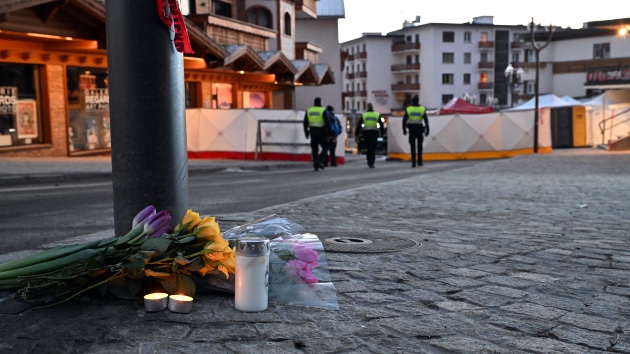US set to introduce UN resolution calling for immediate cease-fire in Gaza
Written by ABC Audio ALL RIGHTS RESERVED on March 22, 2024

(WASHINGTON) — As U.S. and Israeli officials publicly sound off over a potential ground incursion into Rafah in southern Gaza, officials in Washington have set the stage for a flurry of diplomatic engagements between the countries — aiming to head off a humanitarian catastrophe and avert a significant divide between the two allies.
Secretary of State Antony Blinken is set to visit Israel on Friday, but before landing in the country, while visiting Egypt, he underscored the Biden administration’s opposition to a major operation in Rafah, where thousands of Palestinian civilians are sheltering, under any circumstances.
“A major ground operation there would mean more civilian deaths,” he said. “There is a better way to deal with the threat, the ongoing threat posed by Hamas.”
To ramp up the political pressure on Israel — the Biden administration is casting an international spotlight on its concerns by including them in a draft resolution submitted to the United Nations Security Council — set for a vote on Friday.
According to documents obtained by ABC News, the draft emphasizes “concern that a ground offensive into Rafah would result in further harm to civilians and their further displacement including potentially into neighboring countries,” and decries the humanitarian toll of Israel’s offensive.
However, the draft also links a cease-fire to the release of hostages held in Gaza — a position supported by Israel and a term that similar resolutions calling for a truce put forth by other nations have failed to include.
“This resolution is an opportunity for the Council to speak with one voice to support the diplomacy happening on the ground and pressure Hamas to accept the deal on the table,” said Nate Evans, a spokesperson for the U.S. mission to the U.N.
Blinken’s stop in Israel was a late addition to the itinerary for his sixth tour of the Middle East since the Oct. 7 attack on Israel by Hamas, a U.S.-designated terrorist group. Throughout the conflict, the U.S. has repeatedly deployed top-ranking envoys to Israel in order to persuade Israeli Prime Minister Benjamin Netanyahu and his hardline government to take measures to protect civilians in Gaza.
However, U.S. officials see a pending summit on their home turf as the best opportunity to persuade Israel to take a different approach with Rafah.
Blinken described next week’s planned meetings in Washington between the U.S. as a chance to convince Israeli officials to take “alternative actions” in Rafah, which an administration official said would consist of more targeted, high-value counterterrorism missions to eliminate Hamas.
“We are determined, as Israelis and indeed as other partners in the region are, to deal the ongoing problem posed by Hamas, a threat to so many,” Blinken said. “Hamas can be effectively dealt with without a major ground operation.”
As recently as last week, Blinken and other administration officials insisted that the U.S. stance on a Rafah incursion would depend on whether Israel could devise what Blinken described as a “clear and implementable plan” to limit civilian suffering.
But the White House’s approach changed abruptly on Monday after President Joe Biden and Netanyahu held their first call in over a month.
According to a readout of the conversation, Biden expressed “deep concerns” about looming Israeli action in Rafah. Just hours later, national security adviser Jake Sullivan announced the administration’s firm opposition, and said that Netanyahu had agreed to send an interagency team to the U.S. for talks on the matter.
In the meantime, Netanyahu has done plenty of talking himself — defiantly rejecting Biden’s demands and vowing to move ahead with the operation in a public address to members of his government, and even meeting virtually with Senate Republicans to discuss the state of the conflict in Gaza.
As the summit looms, U.S. officials have not specified whether Israel will face any repercussions if it charges ahead with battle plans.
Copyright © 2024, ABC Audio. All rights reserved.
 KVSP
KVSP 




